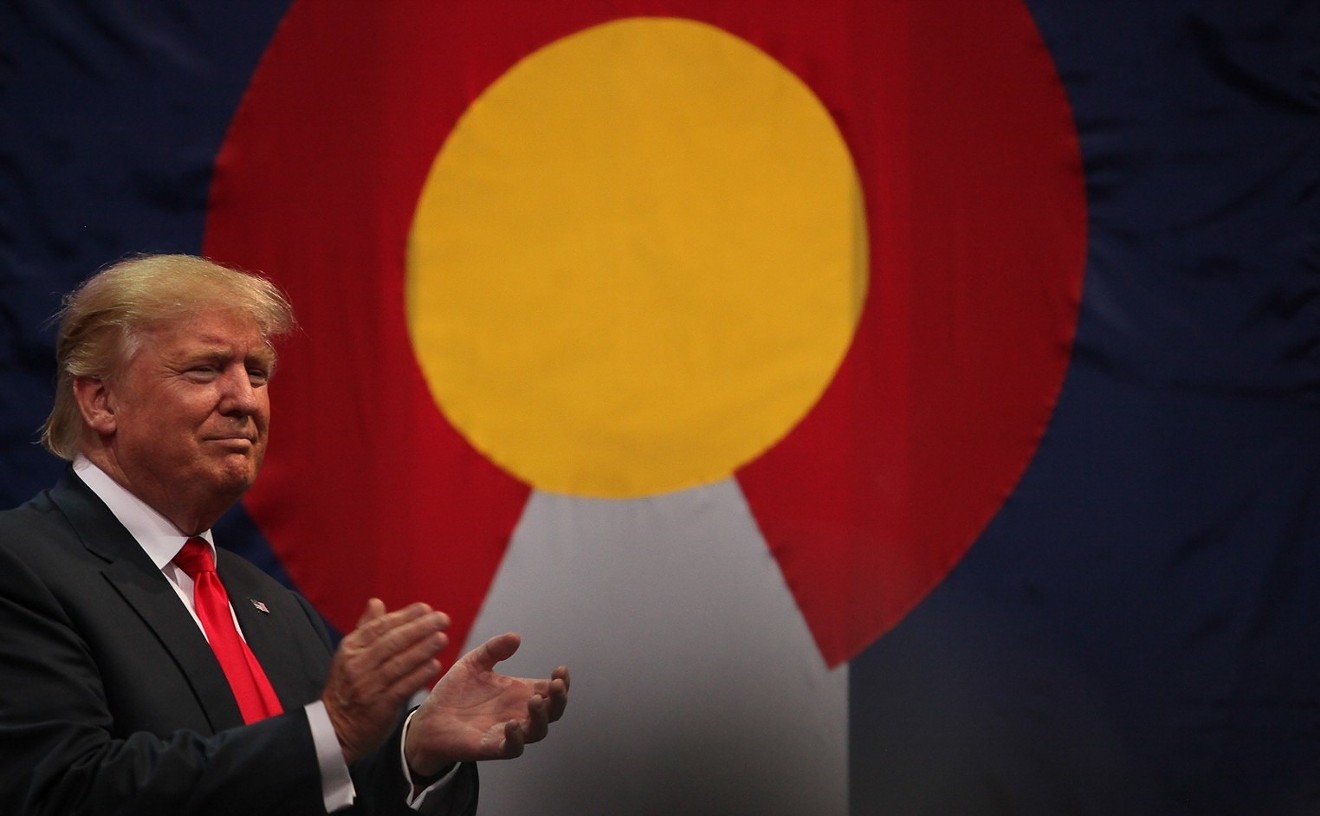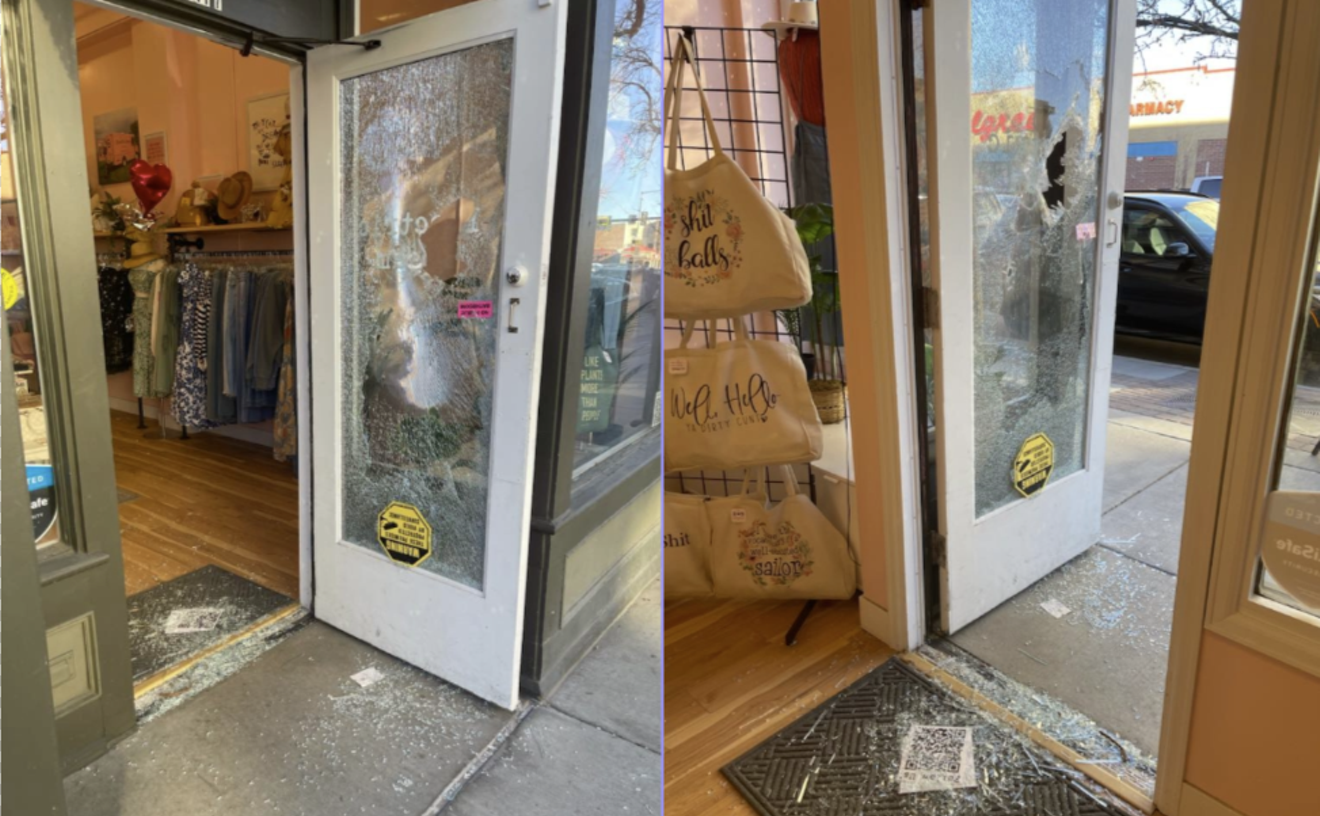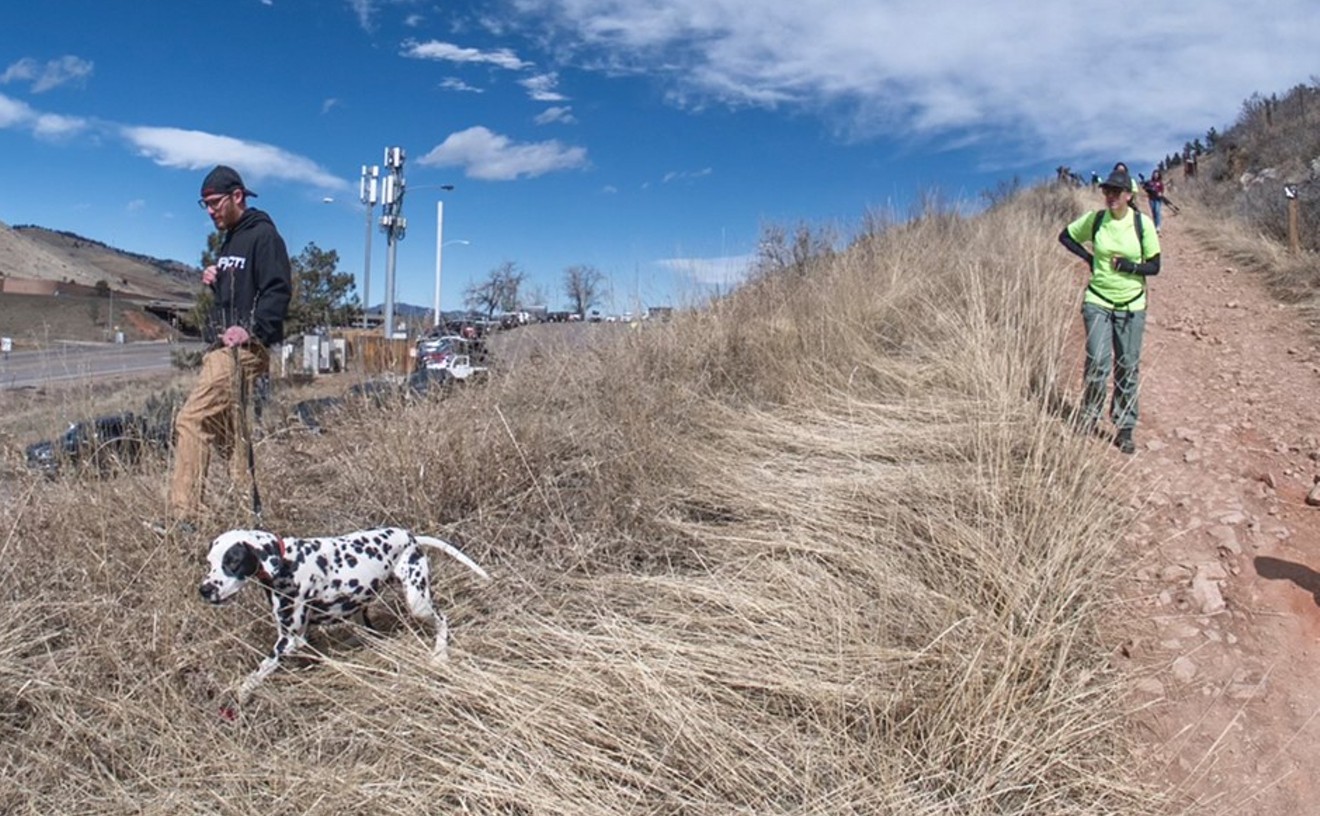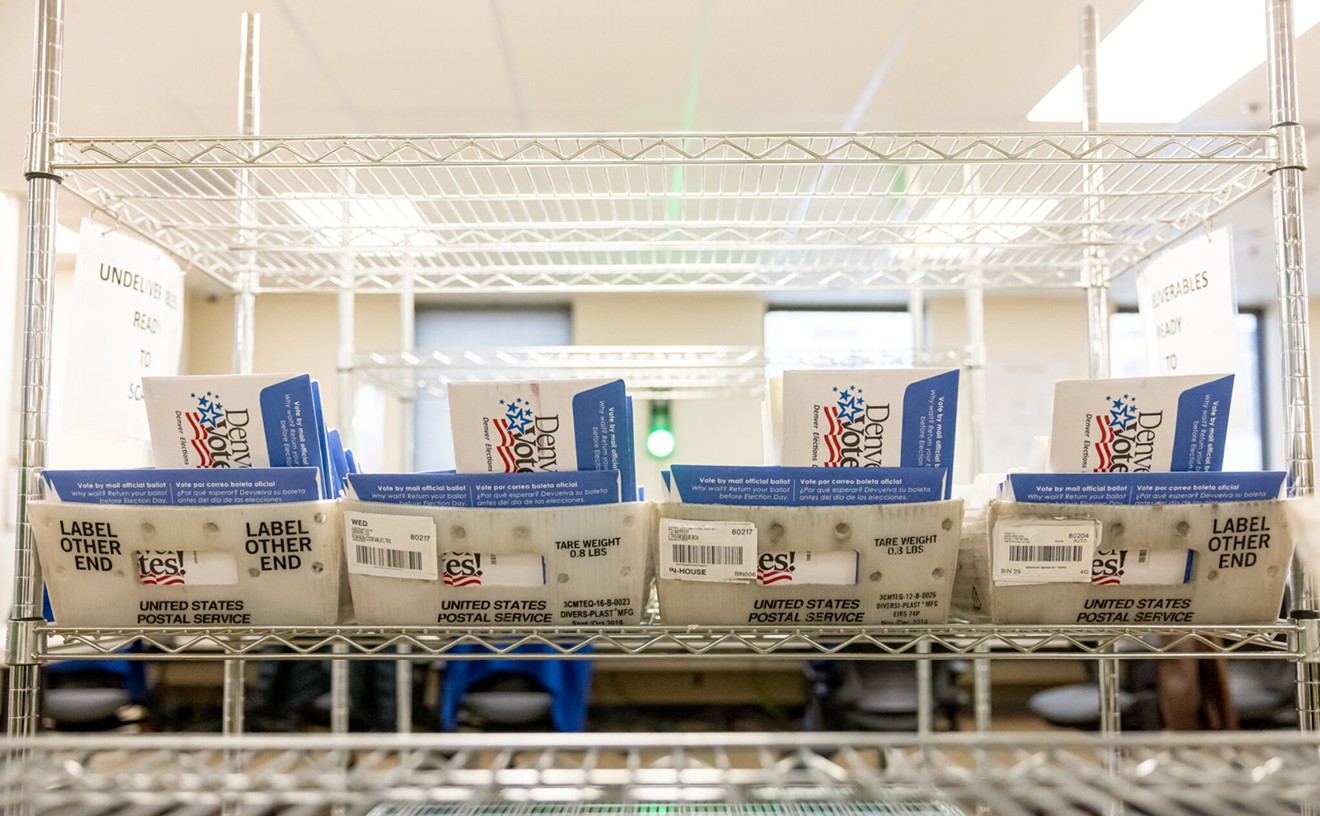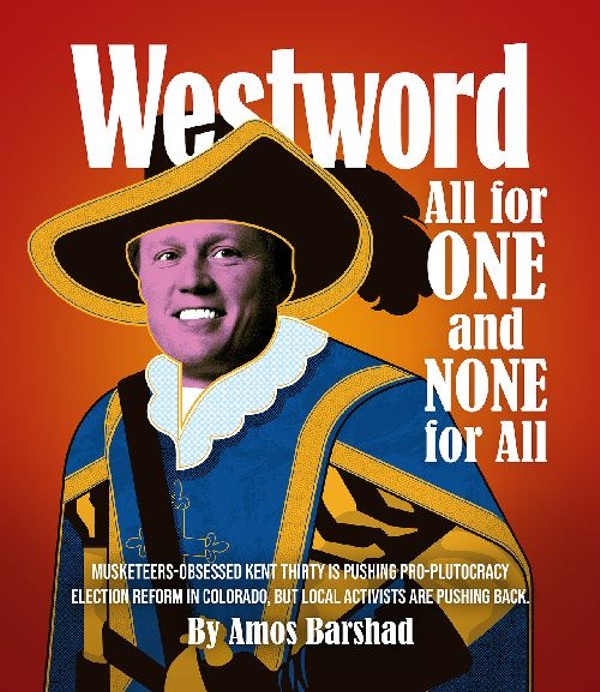If you're looking for an example of grace and forgiveness under extraordinary circumstances, look no further than Anne Marie Hochhalter.
On April 20, 1999, Hochhalter was shot during the attack on Columbine High School by students Eric Harris and Dylan Klebold.
Thirteen people died in the assault, and many more were hurt, including Hochhalter, who was paralyzed by her injury.
Adding to the tragedy: Six months after Hochhalter's wounding, her mother, Carla, took her own life.
Tonight, an interview with Sue Klebold, Dylan's mother, is set to air on the ABC news-magazine program 20/20. It's Sue's first TV interview since the tragedy, timed to coincide with the release of A Mother's Reckoning, a book that tells her story. Reckoning's proceeds are earmarked for "research and to charitable organizations focusing on mental health issues," according to its Amazon page.
In her letter, originally posted on her Facebook page and shared below in its entirety, Hochhalter reveals that she was contacted by 20/20 to comment for the program. Instead, she chose to reach out to Sue directly, thanking her for a compassionate letter sent in the wake of the shootings and stressing that " I have no ill-will towards you. Just as I wouldn't want to be judged by the sins of my family members, I hold you in that same regard."
The pain suffered by Hochhalter — "It's been a rough road for me," she concedes in the letter, "with many medical issues because of my spinal cord injury and intense nerve pain" — has been compounded at times by the media.
Here's an excerpt from a 1999 Message column documenting some of what happened after Carla's suicide.
When Carla Hochhalter, the 48-year-old mother of paralyzed Columbine survivor Anne Marie Hochhalter, committed suicide in an Englewood pawn shop October 22, staffers at the Denver Post found out about it before her family or others in their community; thus, reporters broke the news to some neighbors, resulting in trauma for all concerned. Six days later, Posters on the Columbine beat met to discuss situations like these — a welcome attempt to get perspective on a developing story that other news organizations would do well to emulate. The Associated Press, meanwhile, stirred up a great deal of discussion among media types when journalist Steve Gutterman attended Carla Hochhalter's October 26 funeral and quoted from remarks by the pastor overseeing the service even though the Hochhalter family requested that the press keep its distance. Pete Mattiace, the chief of bureau at Denver's AP office, says his people never received notice that the Hochhalters had asked the media to respect their privacy and concedes that he probably would not have sent Gutterman if he'd known. But, he adds, "some people who are private people become public people through no effort of their own. I don't think any reporter wants to intrude, but it was a public place." In this case, staying out of the spotlight, as the Hochhalters have studiously tried to do, is a lot harder than taking center stage.
Since then, Hochhalter has carefully picked her spots when it comes to publicly commenting on Columbine. For instance, she spoke out about reports that Columbine, a book by journalist Dave Cullen, might be turned into a movie — something noted by our Alan Prendergast for his 2012 feature article "The Columbine Shootings Continue to 'Inspire' Hollywood."
Another excerpt:
"This is a terrible idea for a movie," wrote Anne Marie Hochhalter. "I was injured at Columbine, and Dave Cullen's book is inaccurate and sensationalized. Please don't let this movie be made; it brings back all the pain I experienced, and is insensitive to all of us in the Columbine community."She is much more supportive of Sue's literary efforts, in large part because of the letter the Klebolds sent her during her extended recovery — a missive she attempts to reproduce from memory. She concludes with thoughts about the negative effects of bitterness that offer hard-earned wisdom from which all of us can learn.
Hochhalter figures in several passages in Cullen's book; she was one of the first students shot outside the school and was left paralyzed by her injuries. Her mother's suicide a few months later provides another graphic scene. But Cullen never interviewed Hochhalter; his accounts of her family's ordeal, complete with quotes, come from various news articles.
"It felt kind of violating, to be honest," Hochhalter says of the experience of reading Cullen's book. "He got the part about how I was injured completely wrong. I couldn't bear to read the whole thing. The fact that this movie is in the works, based on what he wrote — I just feel sick over it. I don't want young, impressionable, angry people out there, who idolize Harris and Klebold anyway, to see this on film."
Continue to read the letter, featuring the images Hochhalter posted with it. That's followed by a preview cilp for Sue's appearance on 20/20.
Dear Sue Klebold,
I was injured at Columbine High School in 1999. As you know, your son Dylan, and his classmate, Eric Harris, killed 13 people and then themselves. You are releasing a book called, A Mother's Reckoning, and are appearing tomorrow on the TV program 20/20 to talk about what happened and what your son did. I have only two instances to form an opinion on you and they are as follows:
1. You and your husband wrote me a letter a few months after I was paralyzed saying how sorry you were. It was genuine and personal. The Harris letter, on the other hand, was four sentences long on a folded up piece of paper, and was cold and robotic. To refresh your memory, your letter read like this:
"Dear Anne Marie,
Our prayers have been with you each day as we read about the terrible ordeal you and your family have experienced. We read that you had been transferred to Craig Hospital, and we were so thankful that you had progressed to the point where you could enter a rehabilitation facility. Though we have never met, our lives are forever linked through this tragedy that has brought unspeakable heartbreak to our families and our community. With deepest humility we apologize for the role our son, Dylan, had in causing the suffering you and your family have endured. Your recovery process will be a long and difficult road, and we hope that the support of people all over the world will help you find strength and courage as you meet the many challenges you have yet to face. When we read reports of your progress, we marvel at your resolve. It is still terribly difficult for us to believe that the son we knew could play a role in causing harm to you and others. The reality that he shared in the responsibility for this senseless tragedy is beyond our comprehension. We offer our love, support, and service as you and your family work to gain control over your lives. May God watch over you during your recovery process and beyond. May each day bring you successes, however small, that bring you hope and encouragement.
Sincerely,
Sue and Tom Klebold
2. I was contacted by ABC to comment for the 20/20 special and they told me that any proceeds from your book (aside from publisher's costs) will go to helping those with mental illness. Six months after Columbine happened, my mother, Carla, committed suicide. She was already suffering from depression so the shootings didn't directly cause her to do what she did, but it certainly didn't help. It means a lot to me that you wouldn't keep those proceeds for yourself, but to help others that suffer from mental illness.
I think it's appropriate that the program that you are appearing on is named "20/20". Hindsight is truly 20/20 and I'm sure you have agonized over what you could have done differently. I know, because I do the same thing with trying to think of ways I could have prevented my mother's death. I have no ill-will towards you. Just as I wouldn't want to be judged by the sins of my family members, I hold you in that same regard. It's been a rough road for me, with many medical issues because of my spinal cord injury and intense nerve pain, but I choose not to be bitter towards you. A good friend once told me, "Bitterness is like swallowing a poison pill and expecting the other person to die." It only harms yourself. I have forgiven you and only wish you the best.
Sincerely,
Anne Marie Hochhalter





